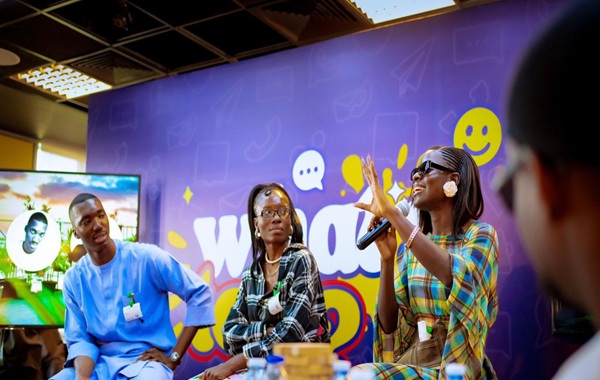Nigeria’s creative economy is undergoing a quiet revolution, with Artificial Intelligence (AI) emerging as the defining tool for a new wave of entrepreneurs. Recent Google Search data shows a sharp rise in interest from young Nigerians seeking to combine creativity with technology to build sustainable careers.
Over the past year, searches for “how to learn AI” surged by more than 160%, while queries such as “how to make money with AI” increased by 40%. At the same time, career-focused searches like “how to start creating content” and “how to start freelancing with no experience” dominated online trends. Together, these signals point to a generation determined to turn digital passion into economic opportunity — with AI at the center.
This shift came into sharper focus during “What’s Tea?”, an exclusive workshop hosted at Google’s Lagos office in partnership with Handle It Africa. More than 40 of Nigeria’s most influential Gen Z creators gathered to explore how Gemini, Google’s AI-powered assistant, can transform creative workflows. From scriptwriting and research to visual brainstorming, the tool is helping creators reduce time spent on routine tasks and maximize high-value output.
For Google, the ambition behind the data is clear. “Gen Z creators are not just shaping culture; they are building the future of Nigeria’s media landscape,” said Taiwo Kola-Ogunlade, Google’s Communications and PR Manager for West Africa. “Our role is to provide the tools that turn that ambition into achievement.”
The creators themselves see AI as an equalizer in a competitive market. Comedian and content creator Layi Wasabi explained, “In this industry, your creativity is your product, but your efficiency is your business. AI speeds up the process, so you can deliver more without compromising quality.”
Handle It Africa’s founder, Olufemi Oguntamu, echoed this, emphasizing that today’s creators are also entrepreneurs. “They’re building brands from the ground up. By equipping them with next-level digital tools, we’re strengthening the ecosystem and elevating Nigeria’s creator economy as a whole.”
Beyond the event, the implications are significant. As global demand for digital skills intensifies, Nigerian creators are positioning themselves not only as entertainers but as business owners leveraging AI to expand reach, efficiency, and profitability.
“What’s Tea?” may have been a single workshop, but it represents a pivotal moment: the convergence of ambition, technology, and entrepreneurship. For Nigeria’s next generation, AI is no longer a futuristic concept — it is the engine driving the future of work.

